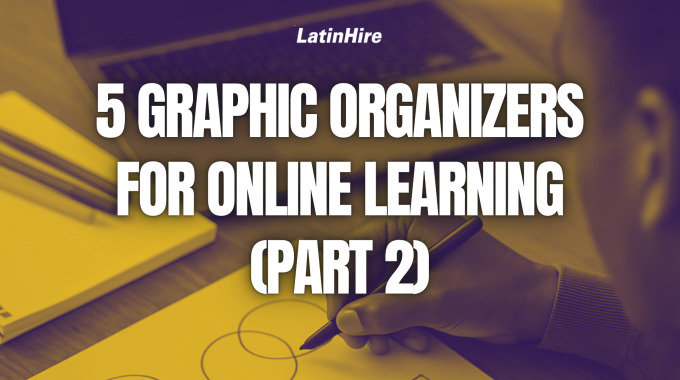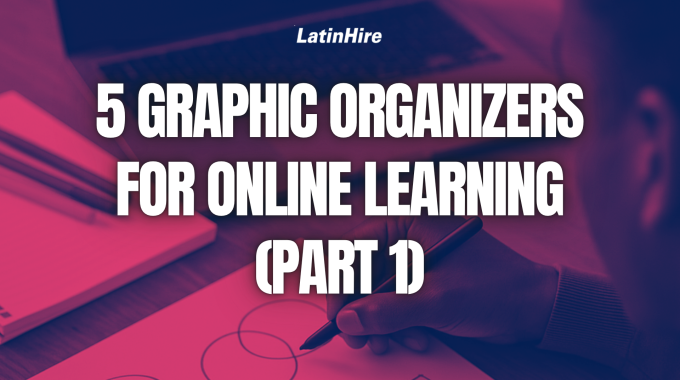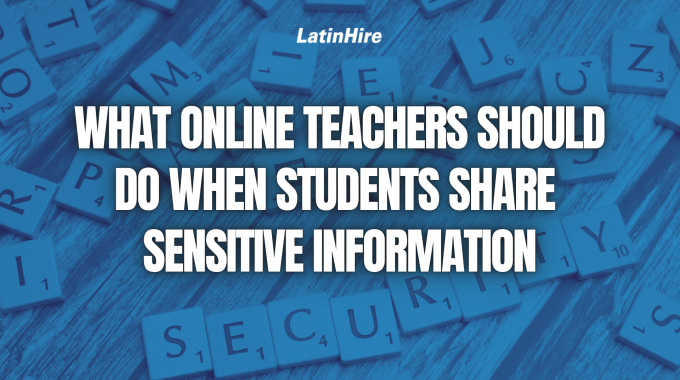Last week, we introduced five graphic organizers you can use with your online students to…

Is Online Teaching a Sustainable Career?
In the evolving landscape of the 21st century, the concept of a traditional career is continuously being redefined. Office jobs are getting replaced by online work, and there are now limitless ways to make money online.
One of the most notable transformations has been the rise of online teaching. Once a niche corner of the education system, online teaching has become mainstream, largely due to technological advancements and the global push brought on by COVID-19.
This rapid growth in online education has led many to wonder whether teaching online is truly a sustainable career. Let’s dive into this discussion!
The Rise of Online Teaching
Online education offers a wide range of benefits that appeal both to educators and students. For educators, it provides flexibility in terms of location and time, allowing them to reach a global audience without the constraints of a physical classroom. Learners benefit from access to diverse courses and resources, often at a lower cost than traditional in-person classes.
Benefits of a Career in Online Teaching

1) Flexibility and Autonomy: One of the most attractive aspects of online teaching is the flexibility it offers. Teachers can design their schedules, choose their working environment, and often have the autonomy to teach in their own unique ways. This flexibility can lead to a better work-life balance, which is crucial for long-term career sustainability.
2) Global Reach: Online teaching platforms have a worldwide reach. Educators are no longer limited to students in their geographical area, which opens up opportunities to teach diverse groups and expand their professional networks.
3) Cost Efficiency: For both teachers and learning centers, online education is much more cost-effective as there is no need for physical classroom space and resources can be shared digitally rather than printed.
4) Variety of Teaching Subjects: Online teaching is not limited to traditional academic subjects. It includes professional development, hobbies, languages, and even personal coaching. This variety allows educators to diversify their teaching portfolio and tap into multiple income streams.
Challenges to Consider as an Online Teacher

1) Technological Hurdles: A reliable internet connection and good technology (e.g. computer, webcam, microphone, headphones, etc.) are essential. Not all educators have access to these resources, or technological failures can disrupt classes.
2) Engagement and Interaction: Maintaining student engagement and interaction can be more challenging in a virtual environment. Educators need to develop new strategies and skills to create an interactive and engaging online classroom.
3) Job Security and Benefits: Many online teaching positions, especially those on freelance or part-time platforms, may not offer the same job security and benefits as traditional teaching roles. This can include health insurance, retirement plans, and paid time off.
4) Competition and Market Saturation: As the popularity of online teaching grows, so does the competition. Educators need to continuously develop their skills, stay updated with the latest educational trends and technologies, and find ways to stand out in a crowded market.
Strategies for Long-Term Sustainability

To ensure a sustainable career in online teaching, you can adopt several strategies:
1) Continuous Professional Development: Staying updated with the latest trends in online education, learning new technologies, and obtaining relevant certifications can help you remain competitive and effective.
2) Building a Personal Brand: Creating a strong online presence through a personal website, social media, and professional networks can help you attract more students and establish credibility.
3) Diversification: Offering a range of courses or services can help mitigate the risk of income fluctuations. This could include creating pre-recorded courses, offering one-on-one coaching, or selling educational materials.
4) Networking and Collaboration: Connecting with other educators, joining professional organizations, and participating in online teaching communities can provide support, inspiration, and opportunities for growth in your online teaching career.
All in all, online teaching can be a viable and sustainable career option if you are willing to adapt to the evolving landscape of online education. Online educators will always be in demand, so as long as you have the teaching skills and subject matter expertise that students demand, you’ll be able to make a fine career out of online teaching!



